
Ribston Hall is a privately owned 17th-century country mansion situated on the banks of the River Nidd, at Great Ribston, near Knaresborough, North Yorkshire, England. It is a Grade II* listed building.

The Wesleyan Methodist Church, also known as the Wesleyan Chapel, is a former Wesleyan Methodist church on Hospital Street, Nantwich, Cheshire, England. Built in 1808, a new façade was added in 1876. The church then seated over a thousand, and was the largest Nonconformist place of worship in the town in the 1880s. It is listed at grade II. The church closed in 2009, after the congregation moved to the former Methodist schoolrooms opposite.
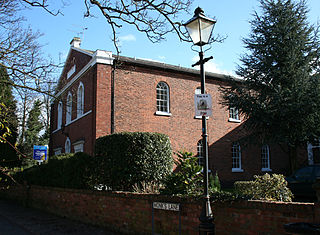
The Congregational Chapel, also known as the Independent Chapel, is a former Congregational or Independent church in Nantwich, Cheshire, England. It is located on Monks Lane, now a pedestrian walkway, opposite the Dysart Buildings and immediately north east of St Mary's Church. Built in 1841–42, it is listed at grade II. The chapel closed in the late 20th century, and the building has been converted to residential use.

Westgate Methodist Chapel stands on the A689 road in the village of Westgate, some 5 miles (8 km) west of Stanhope, County Durham, England. It is a redundant chapel under the care of the Historic Chapels Trust, and is recorded in the National Heritage List for England as a designated Grade II* listed building.
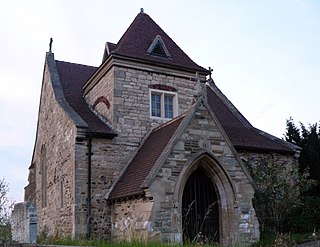
St Oswald's Church is a redundant Anglican church in Kirk Sandall, near Doncaster, South Yorkshire, England. It is recorded in the National Heritage List for England as a designated Grade II* listed building, and is under the care of the Churches Conservation Trust.
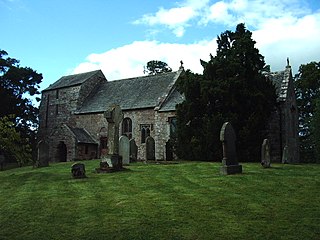
St James' Church is in the village of Great Ormside, Cumbria, England. It is an active Anglican parish church in the deanery of Appleby, the archdeaconry of Carlisle, and the diocese of Carlisle. The parish is united with nine other parishes and thirteen places of worship to form the Heart of Eden benefice. The church is recorded in the National Heritage List for England as a designated Grade I listed building. It stands on top of a circular mound overlooking the River Eden.

Forcett Hall is an English country house in the village of Forcett, North Yorkshire, England, some 6.5 miles (10 km) west of Darlington. It is a Grade I listed building.

Preston Central Methodist Church is in Lune Street, Preston, Lancashire, England. It is an active Methodist church in the Preston Ribble Methodist Circuit, and the Lancashire district. The church is recorded in the National Heritage List for England as a designated Grade II listed building.

Bewerley Grange is a historic building in Bewerley, a village in North Yorkshire, in England.
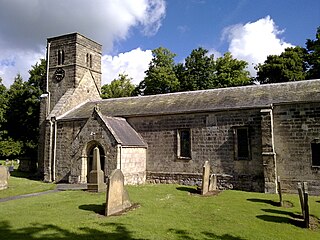
St Nicholas' Church is the parish church of North Grimston, a village in North Yorkshire, in England.

St Mary's Church is an Anglican church in Carlton Husthwaite, a village in North Yorkshire, in England.

Garth Cottage is a historic building in Coverham, a village in North Yorkshire, in England.

All Saints' Church is an Anglican church in Deighton, a village near Northallerton in North Yorkshire, in England.
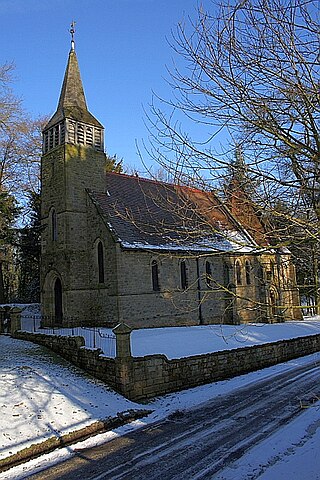
St Agatha's Chapel is a private Anglican chapel in Easby, a village near Stokesley in North Yorkshire, in England.

St John the Baptist's Church is the parish church of East Ayton, a village in North Yorkshire, in England.

St John's Church is the parish church of Yedingham, a village in North Yorkshire, in England.

Hartforth Hall is a historic building in Hartforth, a village in North Yorkshire, in England.

Glaisdale Head Methodist Church is a historic chapel in Glaisdale, a valley in North Yorkshire, in England.

Grassington Methodist Church is a historic church in Grassington, a town in North Yorkshire, in England.

Ayton Hall is a historic building in Great Ayton, a village in North Yorkshire, in England.




















